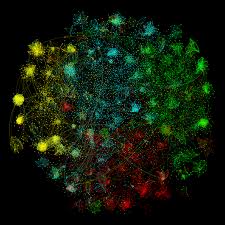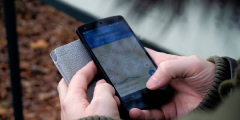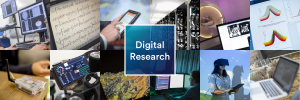Digital Engagement (6): Envisioning the Future
March 17, 2017
As researchers it can be all too easy to forget how difficult research can be for members of the public to understand and apply. Often researchers have a clear vision of what the future of their discipline might look like, but it can be so far at the cutting edge that it has no point of …
Digital Research: Case Studies Blog Series
March 15, 2017
The Digital Research Environment Strategy Group has been reflecting on whether the University of Nottingham’s Digital Research Environment provides the level of support needed to match the ambition of our research strategy. By providing a leading Digital Research Environment we aim to make Nottingham a destination for forward thinking researchers who are enabled to answer …
A security plan for the US National Institutes of Health
March 13, 2017
I’ve been supporting research colleagues who are applying for permissions to access to data held by the US National Institutes of Health (NIH). This is data collected from patients, and relating to a serious medical condition, and hence considered very sensitive, even though anonymised at source. To obtain access permissions, we have created a plan …
Digital Engagement (5): The Crowd and their Knowledge
March 10, 2017
The Crowd encompasses a range of different people with a wealth of experience, and this pool of experts are an untapped source of knowledge. Digital platforms can give them a voice and opportunity to share their ideas and solutions to complex problems. In fact, even the opinions across the entire crowd can be captured with feedback and …
Digital technology to support men’s mental health
March 7, 2017
We’ve recently received this intriguing article from Sarah Brydges of the School of Pharmacy, and are keen to collect more examples of digital research projects, so please get in touch if you would like to share your work. Sarah’s blog I am a practicing pharmacist and part-time PhD student. My research is on men’s mental health, and …
Digital Engagement (4): The Crowd’s Resources
March 3, 2017
So far in this blog series we have explored the idea of using the crowd to analysis research data and also to provide their own data. For some types of research, the data the crowd provides may not be suitable or accurate enough e.g. a person’s description of a location (“Notts”) versus a GPS co-ordinate (52.9547832 …
Digital Engagement (3): The Crowd and Their Data
February 23, 2017
Researchers who study people typically collect data about their lives, practices, activities, attitudes and opinions. It can often be a challenge to find the best-matched participants with the right types of data; let alone in large numbers. By using Crowd Sourcing you can encourage ‘The Crowd’ to bring themselves and their data directly to you. …
Digital Engagement (2): The Crowd as Sensors
February 17, 2017
Sometimes in research there are data analysis tasks that are too complicated for computers to manage, but are surprisingly simple for humans to do. This is the basis for Citizen Science, an approach which uses digital platforms to recruit a target audience (‘The Crowd’) to help analyse and classify research data which cannot be automated by …
Digital Engagement: An Introductory Blog Series
February 11, 2017
As a Human-Computer Interaction (HCI) researcher, talking with colleagues from other fields about digital engagement and impact always used to surprise me. For many, it was something that was only ever possible or relevant toward the end of a research project, while for others it was not always seen as beneficial (and perhaps something of …
Sharing research data – benefits, not burdens
February 7, 2017
UK Research Councils typically require researchers to share their research data externally, in line with a common set of principles established in 2011, but with precise details about what should be shared being defined within individual sets of funder regulations. Effective sharing of research data does require effort and advance planning, and it can be …












Recent Comments